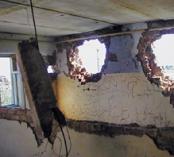
Violence against health-care workers and facilities, medical vehicles and patients during armed conflict and other emergencies is one of the most serious challenges of humanitarian concern in the world today. Violent acts, which limit access to health-care services for those most in need and disrupt health-care systems, have severe immediate and long-term consequences.
Peter Maurer, president of the International Committee of the Red Cross (ICRC), has highlighted the alarming scale of the problem.
A major concern is that many incidents go unreported, for when acts or threats of violence prevent health workers, governments and international organizations from reaching them, even larger numbers of people continue to suffer illness or injury without recourse to medical care. Furthermore, statistics do not reflect the indirect and multiplier effects of violence on a health system. These include the departure of medical personnel and the destruction or closure of health-care facilities, depriving whole communities of access to essential services.
In 2011, the International Conference of the Red Cross and Red Crescent adopted a resolution calling on the ICRC to enhance public understanding of this problem. The resolution required the ICRC to consult with States, components of the International Red Cross and Red Crescent Movement, and other persons and groups concerned with a view to making practical recommendations for increasing the safety of health-care delivery. To this end, the ICRC and components of the Movement launched the Health Care in Danger (HCiD) initiative.
The full article continues at: https://www.icrc.org/en/document/health-care-and-violence-need-effective-protection#.VCmB9vldWSp

